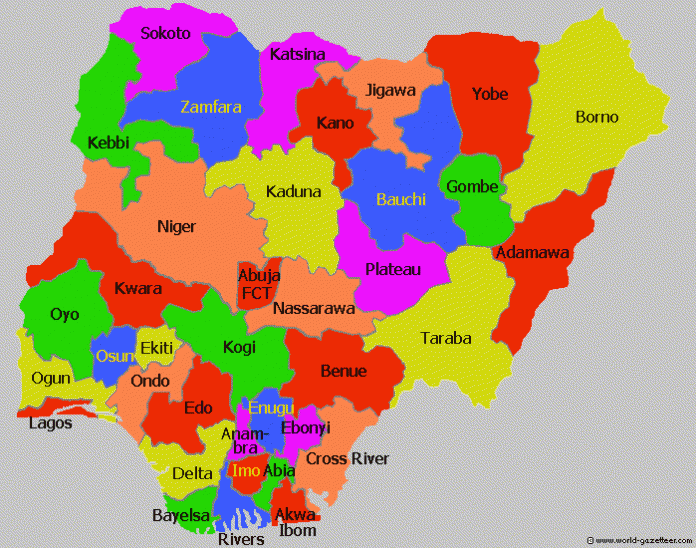Strong denunciation of the collaboration between the Middle Belt and the South came from the core North, yesterday, with a challenge to advocates of the restructuring of the country to use the National Assembly to push their case.
In the same vein, the spate of laws by State Houses of Assembly prohibiting open grazing of cattle was flayed in the same quarters as an infringement of the freedom of movement of herdsmen which they affirmed would sooner than later be annulled by the courts.
The Northern insistence on the status quo was rebuffed by advocates of restructuring from the Middle Belt and the South who affirmed that Nigeria cannot continue on the present framework which they said was discriminatory and oppressive.

Northern leaders, including Tanko Yakasai, Balarabe Musa and Alhaji Abubakar Tsav, spoke in open rebuke of the Southern and Middle Belt leaders who were also accused of lacking the democratic platform to speak. Southern leaders from all three geopolitical zones, last Saturday, took a position with Middle Belt leaders during which they canvassed the immediate restructuring of the country to reflect fiscal federalism, and the prohibition of open grazing among others.
Reacting, yesterday, Kano-based elder-statesman Yakassai, who served as adviser on National Assembly Affairs to President Shehu Shagari, in dismissing the collaboration of the South and the Middle Belt said: “None of them was elected by their people to speak on their behalf. To the extent that this country guarantees freedom of speech, they are entitled to their opinion.
“My quarrel with the people who are advocating this restructuring is that they failed to give the details of the restructuring. If Nigeria is restructured, every Nigerian will be affected. So it is incumbent upon anybody who is campaigning for this to spell it out so that Nigerians can look at it. But to just go about shouting slogans without giving the actual details is nonsensical.
“Every one of them is represented in the state assemblies or the House of Representatives or the Senate. Every one of them knows that the way to change our Constitution is defined in our Constitution and our Constitution empowers our legislators, federal and state, to change the Constitution the way they deem appropriate.
“So I challenge them to sponsor a bill through their elected representatives so that the bill can take its natural course. If the majority support it, it will be implemented.
“I don’t know why they are ignoring the democratic institutions that we have? Why can’t they make use of the democratic institutions? Why are they avoiding the legislature?
“Why do they think that press conference is a substitute for our elected representatives? In a democracy, you channel your views through your elected representatives if you are serious.”
Yakasai responding to the position of the Southern and Middle Belt leaders on the rampage of herdsmen, said: “The problem of herdsmen has been with us, even long before the British came and there was a process of handling it. If they strayed into your farm and destroyed your crop, usually, the local authorities would get them to compensate the victim.
“As long as they are Nigerians, the Constitution of this country has guaranteed their right to move freely. The only thing is that where their livestock stray into other people’s land and damage their crops, they should be made to pay.
“Any state assembly that makes a law to stop people from moving their cattle about is attempting to deny people their constitutionally guaranteed rights, and once the matter is taken to court, it will be declared a nullity,” the elder-statesman said.

Alhaji Balarabe Musa, who served as governor of Kaduna State at the commencement of the Second Republic, on his part, was dismissive of the gathering.
He said: “I have already said enough on this, and I don’t want to waste my time talking on this again. How different are they from those rascally northern youths who gave the southerners the quit ultimatum? How different are they from them, so I don’t want to waste my time.”

Tsav, a retired commissioner of Police from Benue State in the Middle Belt, on his part, dismissed the Southern and Middle Belt leaders as opportunists.
He said: “They are opportunists because they are trying to create a situation that will benefit them. Their coming together seems as if they want to go into Biafra.
“The ordinary man does not know the meaning of restructuring. It is the politicians who are pushing for it. When there is a government that favours them, they don’t do anything but when they are not getting anything they embark on the type of thing they are doing.
“I don’t agree with their demands. Some of these people are vying for the Presidency, and they feel they can get supporters from the South by supporting calls for restructuring.”
The Yoruba socio-cultural body, Afenifere, which was strongly represented at the Southern-Middle Belt summit in reiterating the call for restructuring, said through its spokesman, Mr. Yinka Odumakin yesterday: “That call was made by a majority of Nigerians. It behoves the Federal Government to listen to the requests, so it does not appear to the world that it is serving the minority like the apartheid regime in South Africa.
“The polity is so fragile at the moment, and the government must promote inclusiveness to restore some level of confidence.”
Mr. Akin Osuntokun, who served as Political Adviser to President Olusegun Obasanjo in his second term said: “It is consistent and valid, but I would have wished that the coalition encompasses the whole of Nigeria, including the far North.
“The consolation is the weighty and open support and identification of eminent political leaders like Ibrahim Babangida and Atiku Abubakar. Bias, nepotism, and discrimination are inherently built into Nigeria, and until the country is restructured, it will continue to be plagued by this dilemma. “The meaningful solution is devolution and decentralization of power which divests the centre of its oppressive and over-centralized powers.”
Mrs. Esther Gonda, a retired permanent secretary in the Federal Civil Service from Plateau State, who was also a member of the 2014 National Conference on her part, said restructuring was inevitable on account of the structural dislocations in the polity.
“Restructuring is a positive word, you restructure an organization to make it more efficient, and I think it is time that we did that in this country, given the agitations that are all over the place to look at what needs to be done to make it workable.
“Nigerians all over the place are excelling, but for some reasons, as we are configured, there is a lot of vices that are being generated. So it is good to face it squarely and see what we need to do.
“During the national conference, we talked about so many of these items, and we know it is time for us to sit down and face our dragon squarely.”
*Source: Vanguard













